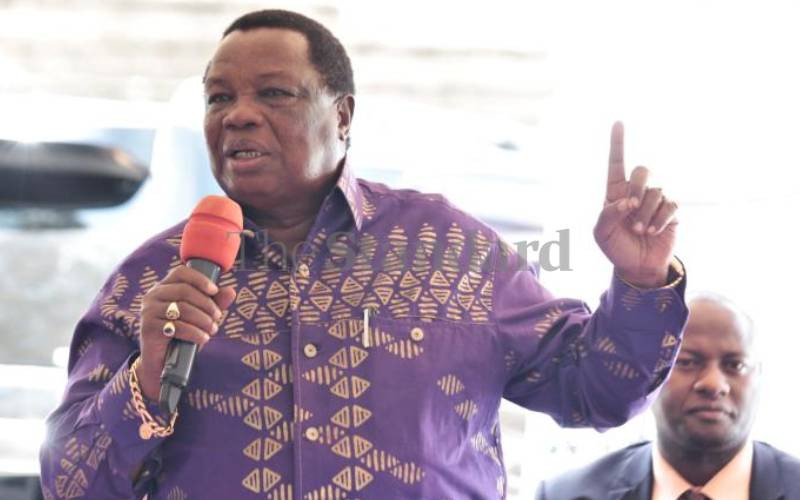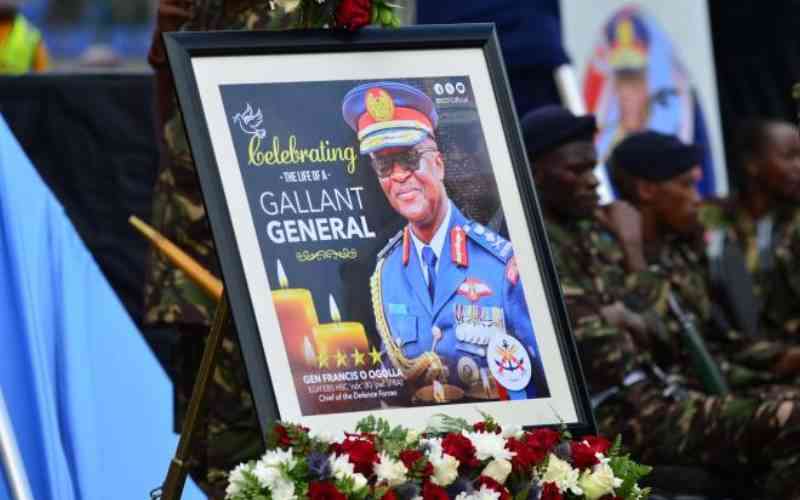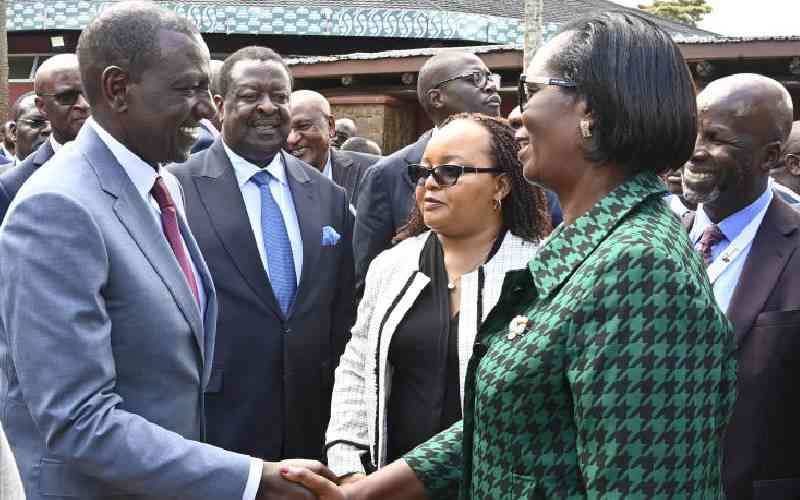
It is now 33 years since clothes maker Manchester Outfitters filed its case, seeking compensation against Standard Chartered Bank.
The battle that was triggered by differences over a Sh2 million loan has been dragging in court until the disputed amount has reached Sh33 billion.
Standard Chartered yesterday asked Court of Appeal judges Mohamed Warsame, Kathurima M’Inoti and John Mativo to allow it challenge a judgment in favour Manchester Outfitters and Gallot before the Supreme Court.
The case between the two is one of the longest-running commercial disputes in Kenya.
Should the Court of Appeal allow the application for certification by the bank, it will be the second round bout between the clothes maker and bank over the loan obtained in 1982.
The lender’s lawyers George Oraro and Radhika Arora argued that the highest court in the land needs to settle the issue of incomplete records before the Court of Appeal.
In addition, the lender wants the Supreme Court to determine whether the security Manchester Outfitters had provided remained until the end.
Court of Appeal judges Sankale ole Kantai, Asike Makhandia and Pauline Nyamweya ruled last year that the High Court made a mistake in allowing the bank to seize Manchester Limited’s premises for defaulting on the loan, which it argues had been cancelled.
The judges ruled that Manchester, which later changed its name to King Woollen Mills Limited and Galot Industries Limited, suffered losses as a result of the cancelled loan and should have been compensated.
They directed that the dispute be referred back to the High Court so it can assess the actual damages and losses suffered by the company, which the bank should pay.
However, the lender argued that the judgment had created confusion in the banking industry.
“The judgment of this honourable court requiring new advances to be secured by the registration of a new charge or debenture throws the law and practice of banking into confusion, contradicts previous precedents, and creates uncertainty in the financial sector,” said Oraro.
The lender was initially called Eastern African Acceptances Limited. It was then renamed Standard Chartered Acceptances Limited, then changed to its current name; Standard Chartered Financial Services Limited.
On the other hand, Phillip Nyachoti asked the Court of Appeal to dismiss the application for certification.
Stay informed. Subscribe to our newsletter
Nyachoti, who is representing Manchester, said the three Appeal Court judges were right as everyone was missing the fifth record of appeal. However, according to him, the judges asked for the High Court’s record, which then gave all the information required.
Private contract
The lawyer also argued that there is no public interest in the case for it to be certified for hearing before the Supreme Court. He stated that the loan was a private contract between his client and the bank.
The bank and the clothes maker will now approach the same court to try and win the minds and the hearts of new judges.
The dispute started in March 1982 when the company entered into a loan agreement with the bank.
The company continued servicing the loan until January 1989 when it defaulted in repaying a balance of Sh14 million which the bank demanded plus interest.
According to the company, they offered to sell one piece of land which at the time was valued at Sh38 million to settle the loan balance but the sale did not happen.
Standard Chartered appointed a receiver manager on default, sparking the 33-year-old case in which Manchester is now demanding Sh33 billion from the lender.
Unhappy with the receivers, Manchester and Gallot moved to the High Court on September 5, 1990 challenging appointment of Ad Gregory and CD Cahill as receivers.
After nine years of war before the High Court, Justice Erastus Githinji (now retired as a Court of Appeal judge) allowed the bank to claim its dues. Aggrieved, Manchester lodged an appeal seeking to set aside the High Court’s decision or alternatively, have the case re-heard by the High Court.
While the Appeal Court was hearing the case, the lender sold off Manchester and Gallot’s security.
At the end of the hearing, on October 4, 2002, the appeal court through a majority judges’ decision slapped the bank with Sh251 million bill and ordered it to pay 14 per cent interest.
Justices Abdul Lakha (retired) and Effie Owuor’s (retired) judgement that the bank should compensate the garments makers carried the day while Justice Phillip Tunoi (retired) dissented.
The appeals court, by then, was the highest court in the land, meaning the judgement was final.
Nevertheless, the bank did not bow out from the war; it instead lodged another suit before the Comesa Court of Justice arguing that the decision was against the treaty establishing Comesa.
It however retreated from the COMESA war in 2006 and filed another application before the Appeals Court in Kenya arguing that the declarations by the three-judge bench ought to have been set aside.
The argument by the bank was that Justice Lakha ought to have stepped aside as he had represented Manchester in the case before the High Court.
However, the firms filed their objection against the then highest court in the land hearing the case as it had already pronounced itself in their favour. After 11 years of being in court, on April 8, 2016, a five judge bench comprising Wanjiru Karanja, Hannah Okwengu, John Mwera (retired), GBM Kariuki (retired) and Philomena Mwilu set aside the 2002 judgment and ordered that the case should be heard afresh.
The clothes maker moved to the Supreme Court, arguing that the Appeals Court wrongly applied the 2010 Constitution to interpret a dispute determined using the old laws.
The bench led by Chief Justice David Maraga, Smokin Wanjala, Njoki Ndung’u and Isaack Lenaola found that it would be absurd for the Supreme Court to review an Appeals Court decision if that court itself could not.
After the Court of Appeal re-heard the case, it ruled in favour of Manchester. Following this judgment, the lender is now seeking to approach the highest court in the land again.
 The Standard Group Plc is a
multi-media organization with investments in media platforms spanning newspaper
print operations, television, radio broadcasting, digital and online services. The
Standard Group is recognized as a leading multi-media house in Kenya with a key
influence in matters of national and international interest.
The Standard Group Plc is a
multi-media organization with investments in media platforms spanning newspaper
print operations, television, radio broadcasting, digital and online services. The
Standard Group is recognized as a leading multi-media house in Kenya with a key
influence in matters of national and international interest.
 The Standard Group Plc is a
multi-media organization with investments in media platforms spanning newspaper
print operations, television, radio broadcasting, digital and online services. The
Standard Group is recognized as a leading multi-media house in Kenya with a key
influence in matters of national and international interest.
The Standard Group Plc is a
multi-media organization with investments in media platforms spanning newspaper
print operations, television, radio broadcasting, digital and online services. The
Standard Group is recognized as a leading multi-media house in Kenya with a key
influence in matters of national and international interest.









